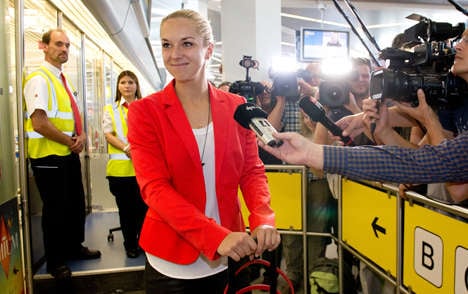The 23-year-old was beaten by French player Marion Bartoli on Saturday in London. Although she lost in straight sets, at 1-6, 4-6 Lisicki was the first German to reach the finals since Steffi Graf in 1999.
“Marion was too good, she earned it,” Lisicki told reporters after the match. “I would have really liked to have won and I hope I get a second chance,” she said, breaking into tears.
“Boom Boom Bine”, as she has been dubbed by the German media, will see her world ranking rise from 24 to 18. If she had won, she would have been placed 11th.
She arrived at Tegel airport in Berlin on Sunday to cheers of “Sabine, Sabine!” from around three dozen fans, who rushed towards the star. Speaking at the gate, she told onlookers that “of course I was disappointed but I had two really great weeks and can be a bit proud of myself.”
She thanked her English tennis fans on Twitter “I love you, I will miss you. Great how much devotion you showed. Next year I will come back and can’t wait to see my fans again,” she wrote shortly before leaving the country.
DPA/The Local/jcw



 Please whitelist us to continue reading.
Please whitelist us to continue reading.
Member comments